By Tire Tube and Snakeheads
My Family’s Escape from the Vietnam War
My father was born in pre-war Saigon, Vietnam (present-day Ho Chi Minh City). I’ve always been curious about his childhood, especially the journey that led him and his family to escape the country during the war. He is not getting any younger, so I decided to ask him about his past and document his story.
Before the War: American Soldiers and the Jewelry Business
Growing up, I had thought American soldiers arrived in Vietnam only for the war, but I recently learned that U.S. military had been present in Vietnam since the early 1950's to support the French and the South Vietnamese government. Their spending created opportunities for local businesses, and contributed to my grandparents’ jewelry business in Saigon.
A frequent path saw soldiers spending on Vietnamese “bar girls,” who would then purchase jewelry from my grandparents. Very often, my grandmother would look after the children of these “bar girls” when their mothers were working. This peculiar economic process sustained my family during the pre-war years. It was this financial foundation that allowed my grandparents to support their family and eventually finance their escape when the war intensified.
Crossing the Saigon River by Tire Tube
While Saigon was vibrant and full of life, my grandfather always preferred nature — living near farms, trees, and water. On one occasion, my grandparents got into an argument and my grandfather decided to move into a separate home across the river from the city center. This second home was a small cottage more isolated, closer to nature, and was a place where my grandfather could rest at the end of each day, away from the busy life of the city.
My grandfather loved swimming and the cottage’s proximity to the river gave him plenty of opportunities to indulge. One day, when my father was just around four years old, my grandfather decided to take him to the second home in an unusual way. After school, my father was placed on a tire inner tube while my grandfather swam alongside it, pushing it across the Saigon river, the major waterway through Saigon. The crossing was about 300 meters wide, but at that age, my father didn’t know how to swim and had no say in the matter.
When I asked my father why my grandfather would take such an unusual path home, he explained that my grandfather loved swimming so much that that he’d do it just for the fun of it (“可以游到水過癮喎”). My grandfather’s eccentricity was a significant part of who he was. His friends nicknamed him “神正,” a playful combination of his name and a word for eccentricity. In hindsight, the river traverse seems symbolic — foreshadowing the escape he himself would arrange for his family years later, under much graver circumstances.
The Vietnam War: Treating Humans as Bullets
As the Vietnam War escalated in the late 1960s and early 1970s, my father entered his teenage years. By then, any young man turning 16 was automatically drafted into the military. Families like mine were desperate to protect their sons from being sent to fight. Drafted soldiers were sent to war with little concern for their lives, and when they died, families received only a curt letter of notification.
My father recalls a neighbor who lost his son in the war and went mad upon hearing the news. The authorities, unable to console him, had to put him away. My father said the war saw people not as human beings but as “bullets to be used in a larger conflict.”
The Move to Hong Kong: Father and Uncle in 1968
By 1968, the war had reached its peak. My grandparents, fearing for their sons’ futures, made the heart-wrenching decision to send my father and uncle to Hong Kong. They knew that sending their teenage sons to an unfamiliar land might mean never reuniting, but they would rather their sons not get drafted. They sold assets accrued through their jewelry business and paid bribes to Hong Kong official to obtain residency for their children. The brothers spent their teenage years away from their parents, in a strange and unfamiliar land, while my grandparents remained in Vietnam, facing the instability of the conflict.
Grandfather’s Journey: The Role of the Snake Heads
In 1972, my grandfather made the decision to leave Vietnam and join his sons in Hong Kong but by this time the war made it difficult to leave. Many refugees, including my grandfather, relied on “蛇頭”, or “Snakeheads” — individuals who organized and facilitated illegal immigration for a fee. The term “Snakehead” originates from the metaphor of a snake’s head leading its body, symbolizing the role of these facilitators as guides for groups of migrants seeking refuge. These “Snakeheads” played a critical role in helping refugees flee oppressive regimes, often navigating dangerous conditions and crossing borders illegally.
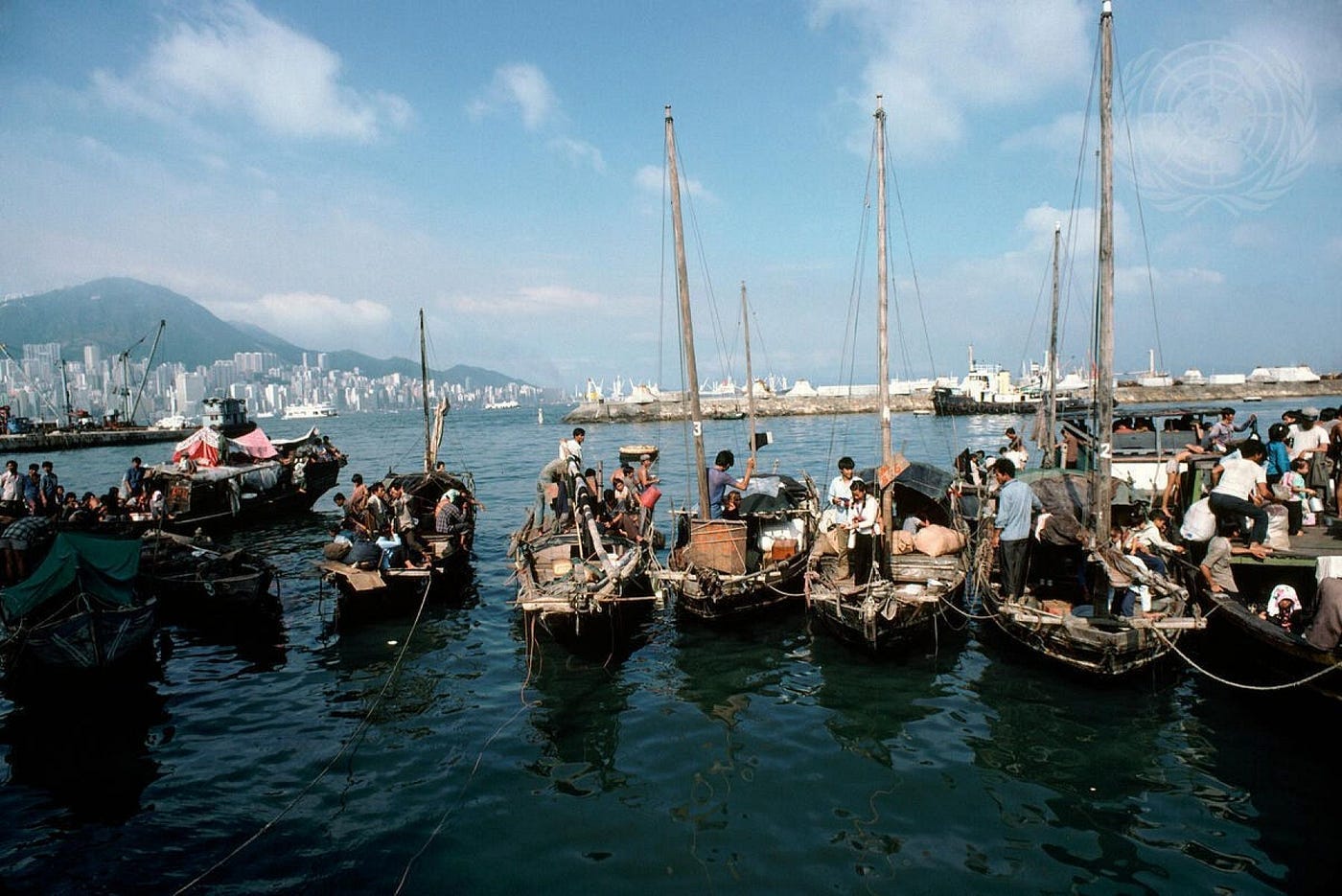
My grandfather’s journey was no exception. Along with his cousin, my grandfather relied on the services of the Snakeheads to escape Vietnam. They were packed into a boat with other refugees, traveling silently to avoid detection. He found the air too oppressive and complained loudly, much to the anger of the Snakeheads and other refugees, who feared the attention it would attract. Thankfully, despite his stubbornness, my grandfather made it safely to Hong Kong. At this point, all three men in the family have moved to Hong Kong, leaving my grandmother and aunt in Vietnam.
Just as my father was placed on the float as a child to ensure his safety while my grandfather swam across the river alongside him, years later, my grandfather’s journey to Hong Kong saw him seeking a safer passage for his family. Both times, my grandfather subjected himself to treacherous conditions — whether swimming across the Saigon River or enduring ramped, airless boats — to ensure that his family had a safer future ahead.
Aunt’s Failed Escape Attempt
After my dad, my uncle and grandfather successfully migrated to Hong Kong, my aunt attempted to join them in 1975 amidst the war. Traveling with a family friend but without any family, she boarded a boat with almost 100 other passengers in hopes of reaching safety. Less than a day after leaving the port, the boat’s engine malfunctioned. They spent a week stranded on the water exposed her to unsanitary conditions — she got lice and had to survive on 腐乳 (fermented bean curd) every day of the week. Fermented bean curd (腐乳) is ideal for refugees on boats due to its long shelf life, nutritional value, and compact size. Their boat had to pay another vessel to tow them back to Vietnam. Upon returning home, her neighbors picked the lice from her hair one at a time.
A New Life in Hong Kong for Grandmother and Aunt
In 1976, after the war had ended, my grandmother and aunt were finally able to leave Vietnam. This time round, they didn’t have to rely on Snakeheads, as the war had ended and the situation had stabilized. My grandfather brought my aunt to Hong Kong legally with his newly acquired Hong Kong residence status. Ultimately, there was a roughly seven-year gap between when my teenage father and uncle left Vietnam and when my grandmother and aunt finally made the journey.
Reflecting on Our Family’s Journey
Every year, my family would remind me how many millions the house they once owned in downtown Saigon would be worth if they had been able to keep them. Yet, they believed they made the right choice to escape. The uncertainty of how the Viet Cong dealt with capitalists left little room for security or prosperity.
During and after the war, many orphans were left to wander the streets of Saigon. Many disabled Vietnamese veterans had to beg in the streets for money, which negatively affected tourism. The Vietnamese government eventually intervened, housing these veterans in special facilities and providing food and shelter.
For decades, my father would tell me not to mention that his family came from Vietnam, particularly to people in Hong Kong, due to the discrimination against Vietnamese refugees at the time. It wasn’t until the writing of this post that my father reflected on how much the world has changed over the decades that he allowed his history to be shared publicly.
Remembering my Grandfather
What fascinates me most about these family stories is my grandfather’s eccentric choices. He often chose the unconventional, whether it was pushing my father across the river on a tire tube or defying the oppressive silence in a refugee boat.
Once a week, I continue to remember my grandfather by swimming as a form of self therapy. He was the one who taught me to swim — each stroke reminds me of him.
This essay is dedicated to my younger brother. As he grows older, I hope that he will come to appreciate these stories of his family’s origin.


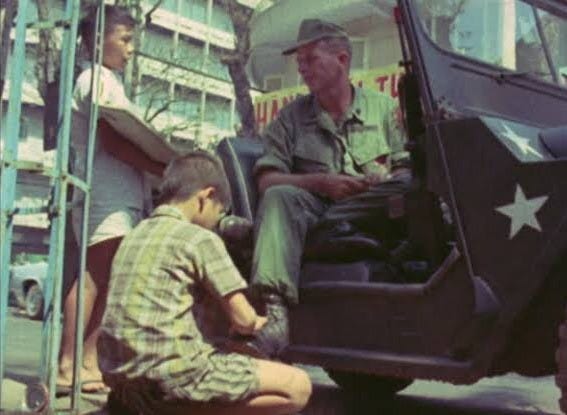
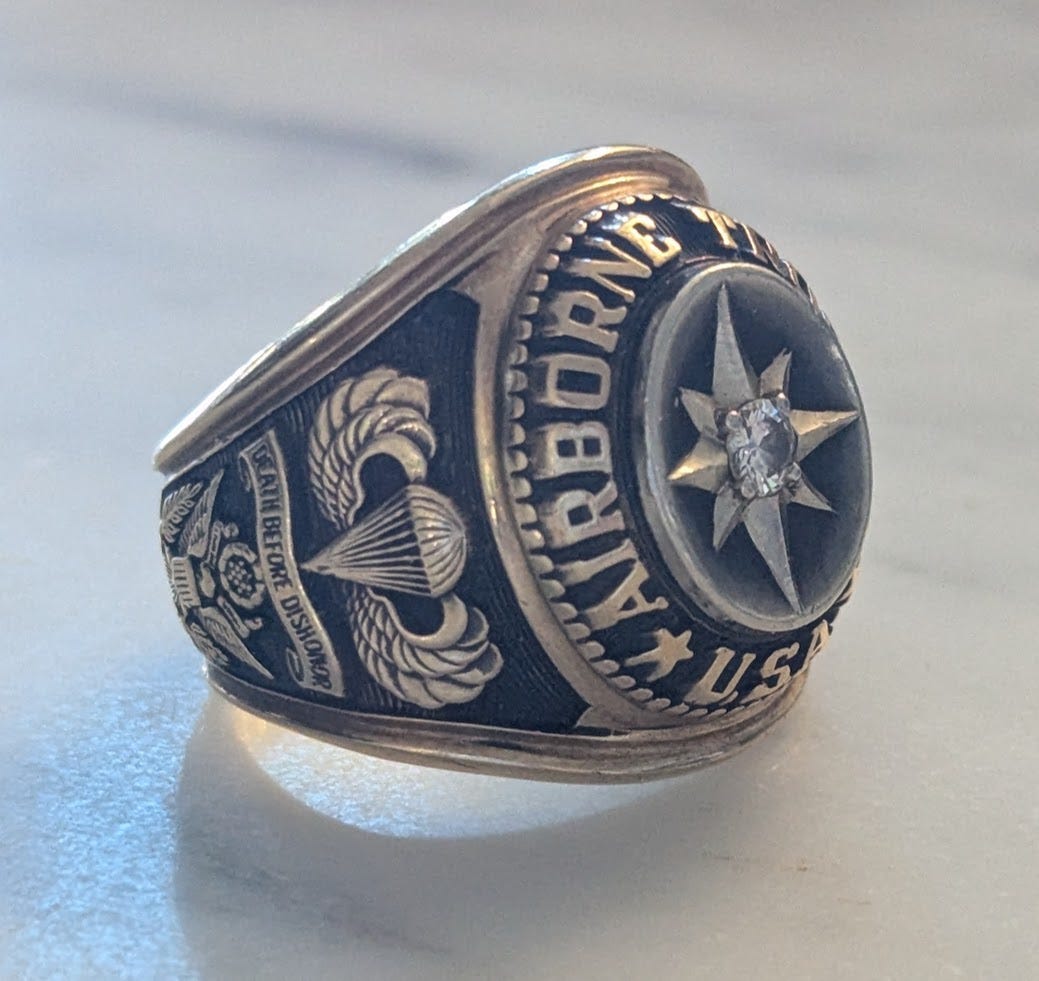
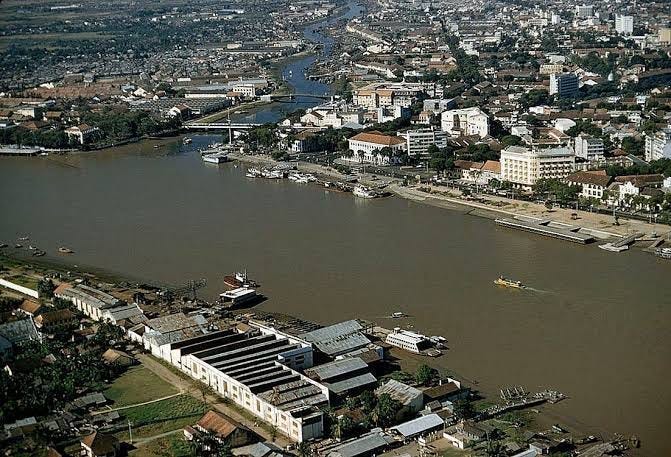
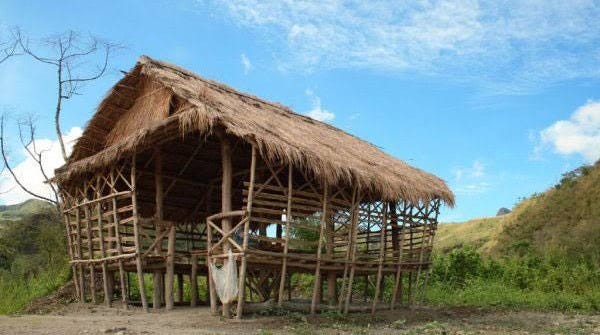

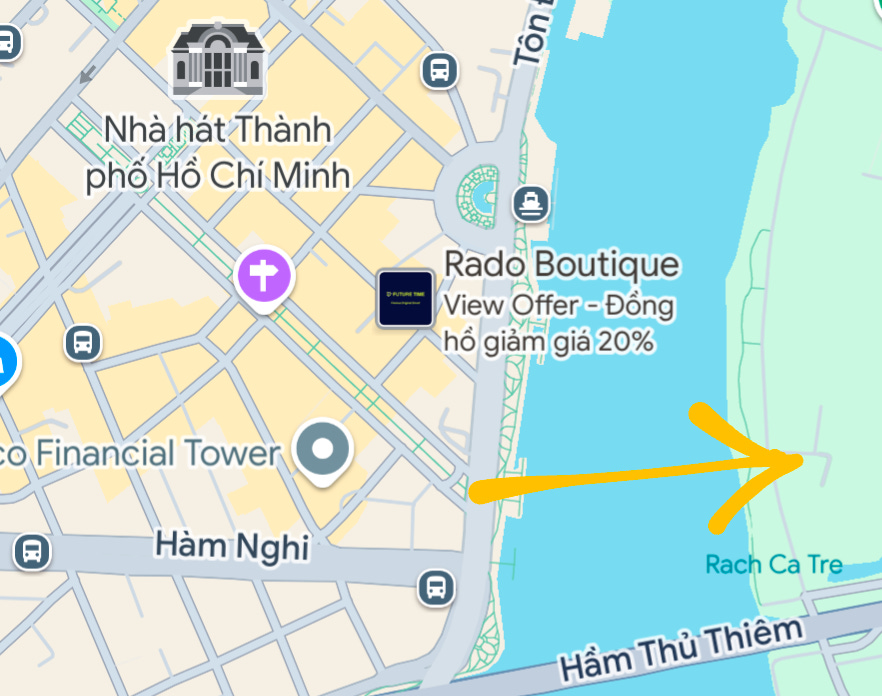


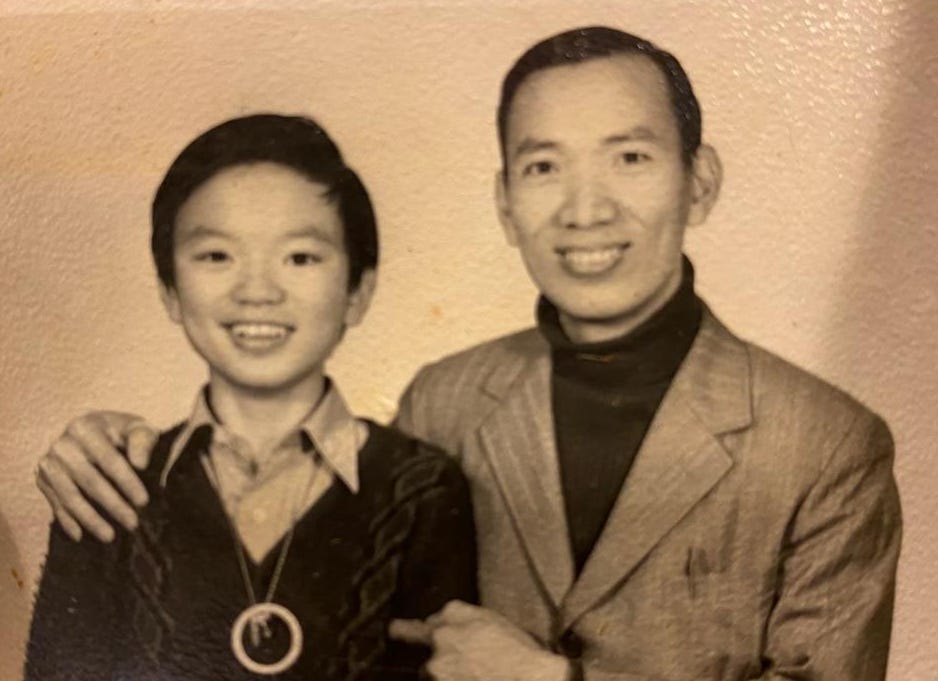
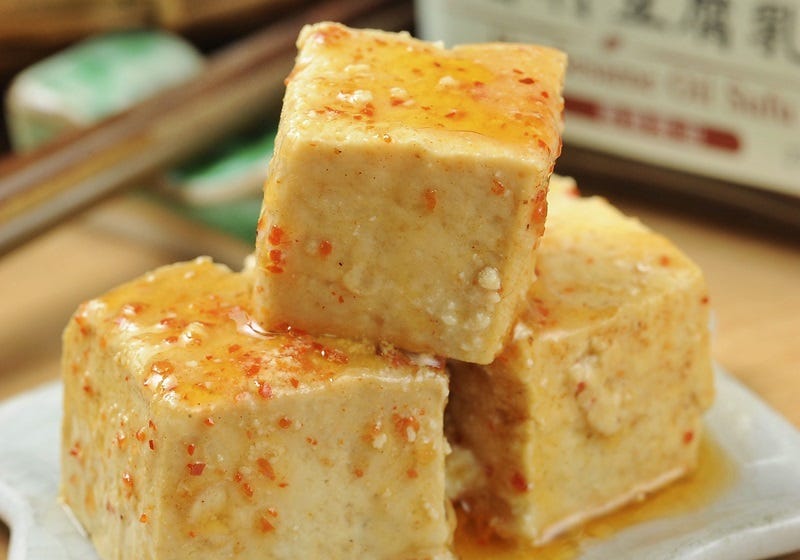
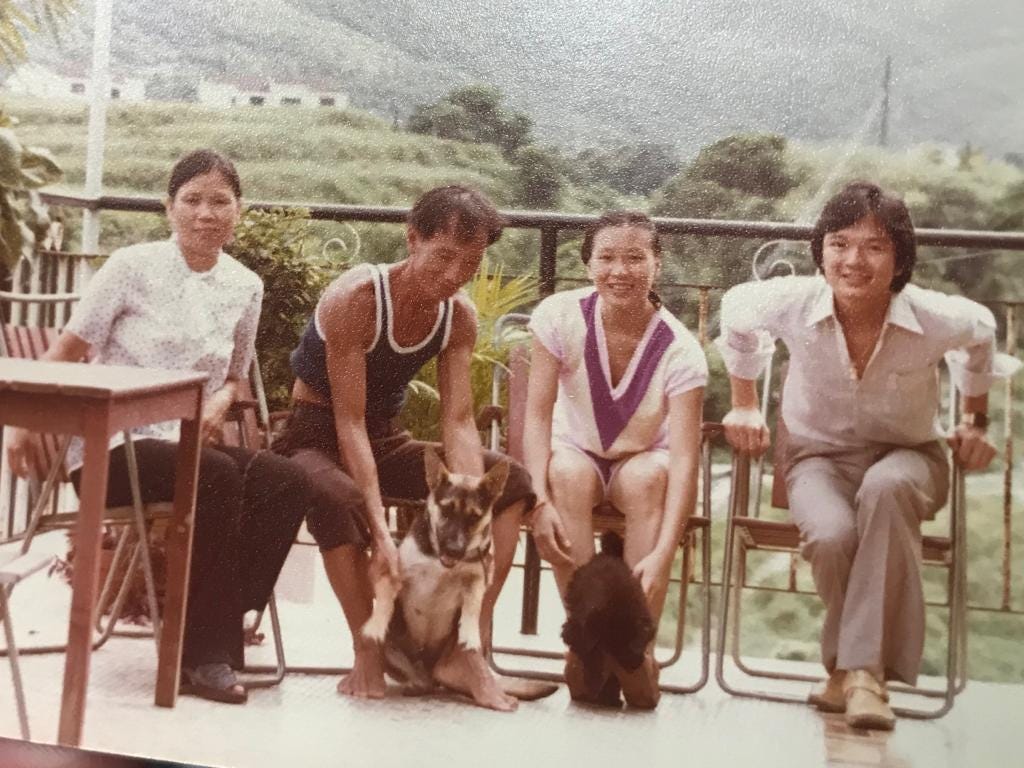
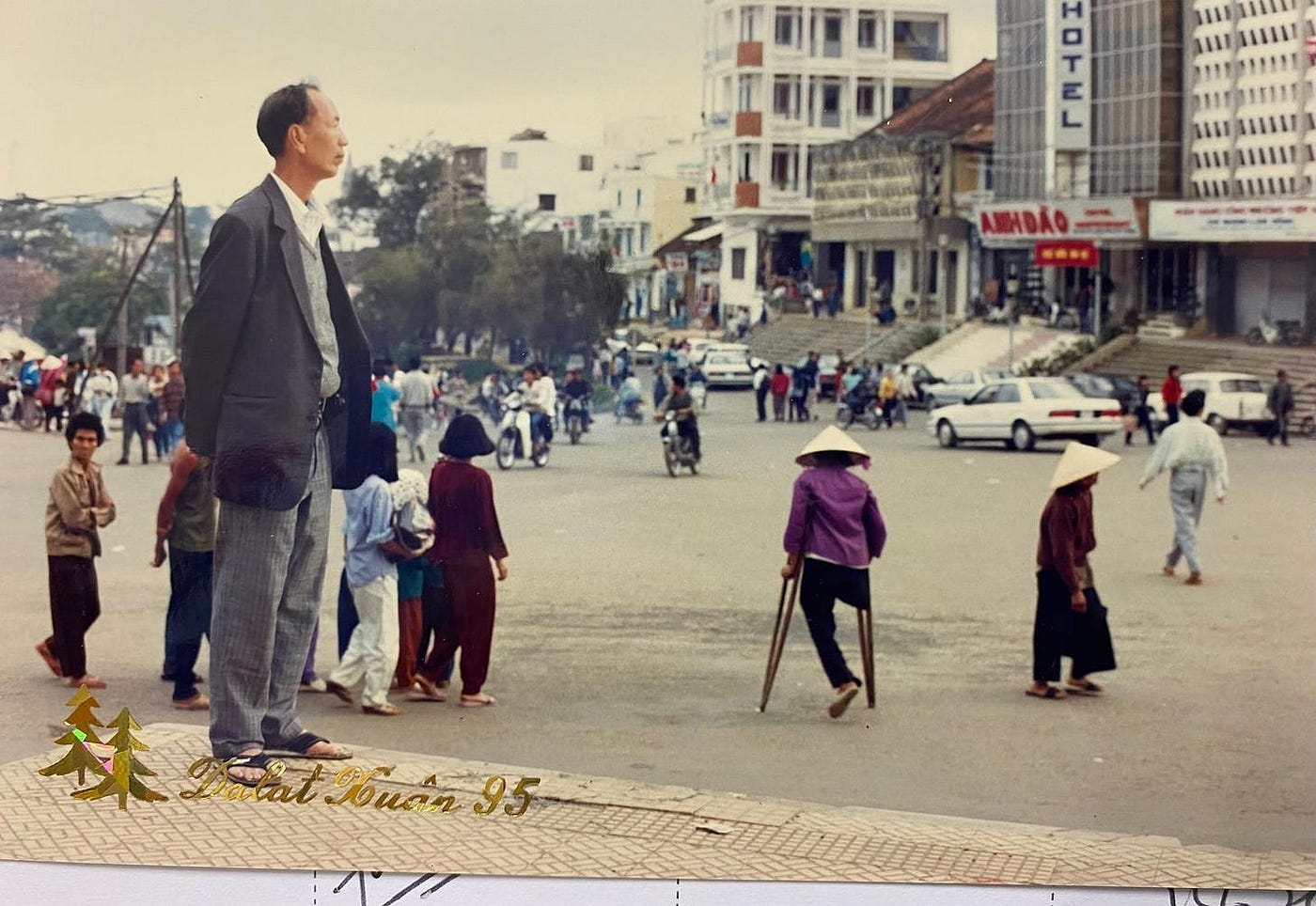
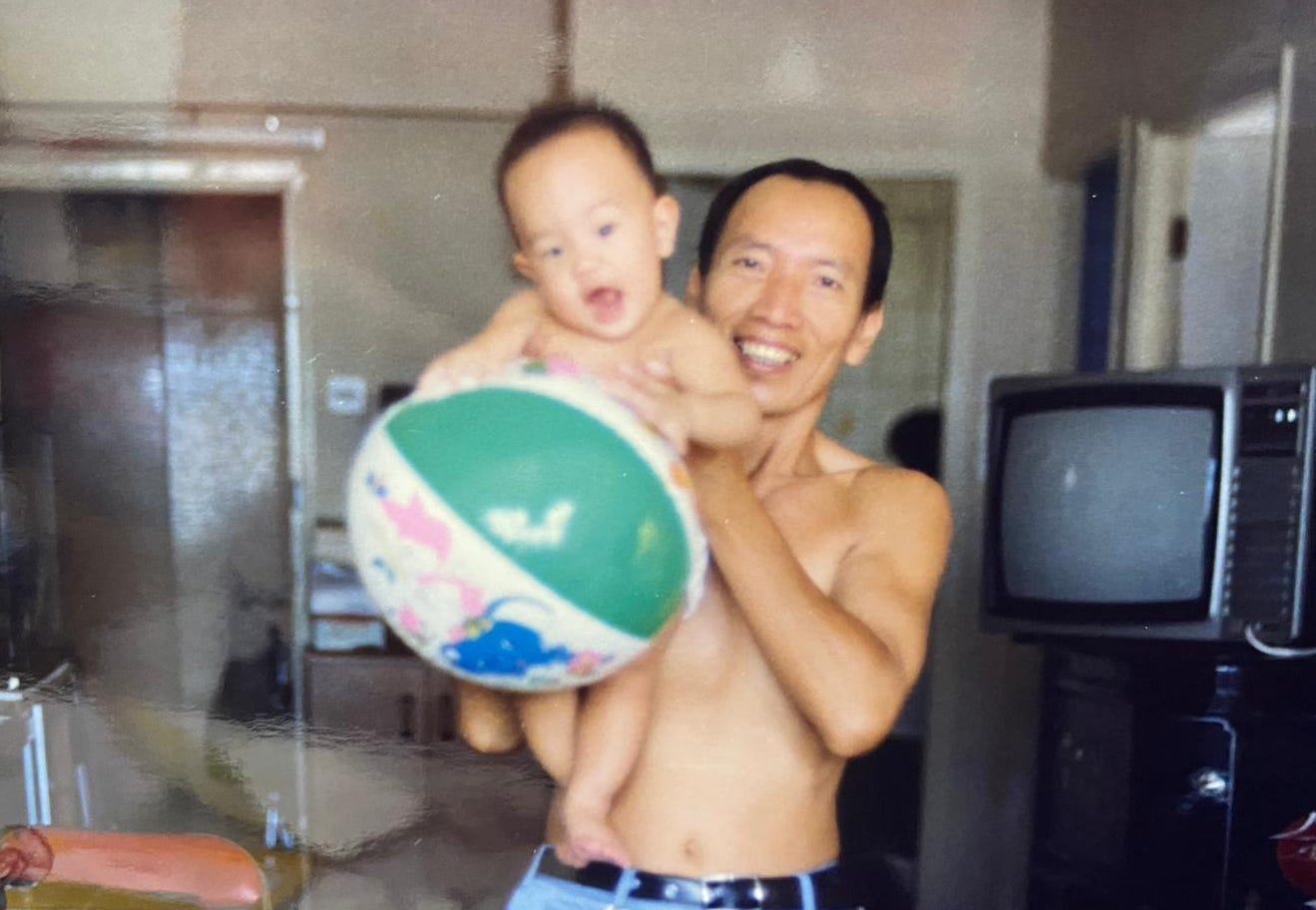
Beautifully told :’)
Wow this is a powerful moment: “It wasn’t until the writing of this post that my father reflected on how much the world has changed over the decades that he was able to speak about his past with more openness.”
Adrian, I’m impressed with how you have enabled a small but powerful shift in your father’s life. I hope he continues to share these precious memories that foster understanding and strengthen relationships.
I was also touched that you think of your grandfather whenever you swim. Please share more stories about him too!